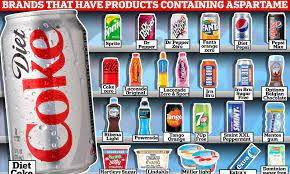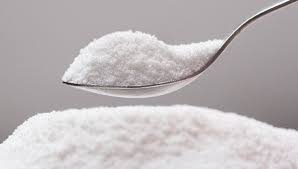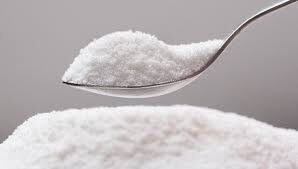Table of Contents
One of the most widely used artificial sweeteners, aspartame, is set to be declared a possible carcinogen by the International Agency for Research on Cancer (IARC), the cancer research arm of the World Health Organization (WHO). The upcoming classification, expected in July, follows concerns about the safety of the substance and its alleged links to cancer, neurological disorders, and weight gain. However, experts emphasize the need to evaluate these claims based on scientific research.
Concerns Surrounding Aspartame’s Safety
Aspartame, an artificial sweetener used as a sugar substitute in various food and beverage products, is made by combining two amino acids: aspartic acid and phenylalanine. While it has been widely used for over four decades, concerns about its safety have persisted. The most common allegations against the substance include its potential to cause cancer, neurological disorders, and weight gain.
Lakshmi, a senior dietitian at Kamineni Hospitals in Hyderabad, highlights the importance of separating fact from fiction when it comes to the safety of aspartame. She stresses the need to evaluate these claims in the context of scientific research. The International Agency for Research on Cancer classifies it as “possibly carcinogenic to humans” will prompt the joint FAO/WHO Expert Committee on Food Additives to update its risk assessment exercise on the substance, including reviewing the acceptable daily intake and dietary exposure assessment for the sweetener.
Products Containing Aspartame

Aspartame is commonly found in a wide range of food and beverage products. It is used as a sweetener in diet sodas, carbonated beverages, sugar-free chewing gum, yoghurt, tabletop sweeteners, low-calorie desserts, breakfast cereals, snack bars, and even certain pharmaceutical products to enhance taste or provide a sweet flavor. Consumers should be aware of the presence of the substance in these items, especially those labeled as “sugar-free” or “diet.”
Regulatory authorities have established acceptable daily intake (ADI) levels for the substance, representing the amount that can be safely consumed daily over a lifetime without adverse effects. The US Food and Drug Administration (FDA) has set the ADI for aspartame at 50 mg/kg bw per day, while the European Food Safety Authority (EFSA) has established an ADI of 40 mg/kg bw per day. It is crucial for individuals to consume the substance within these limits as specified by the authorities.
For those seeking alternatives to this sweetener, there are other artificial sweeteners available on the market. Common alternatives include sucralose and stevia, which can be used as substitutes in various food and beverage products.
What May it Mean for Aspartame?

The classification of aspartame as a possible carcinogen by the International Agency for Research on Cancer raises concerns about its safety. However, experts emphasize the need to evaluate claims based on scientific research. The substance widely used in various food and beverage products, should be consumed within the acceptable daily intake limits established by regulatory authorities. Alternative sweeteners such as sucralose and stevia provide options for individuals who prefer to avoid this sweetener. Consumers are encouraged to stay informed and make choices based on accurate information regarding the use of artificial sweeteners in their diet.
Currently in India, food safety regulations permit the use of the substance as a food additive. The Food Safety and Standards Authority of India (FSSAI) has set regulations and guidelines for the acceptable use of aspartame in food and beverages. Manufacturers must adhere to these regulations to ensure the safety and proper labeling of products containing the substance in the Indian market. As precautionary action, it is best to avoid products containing the substance at the present.













